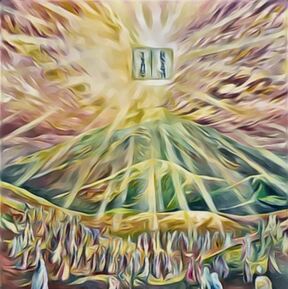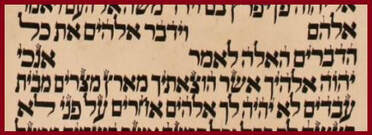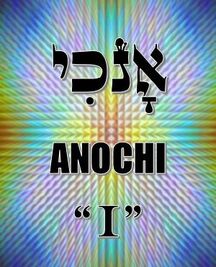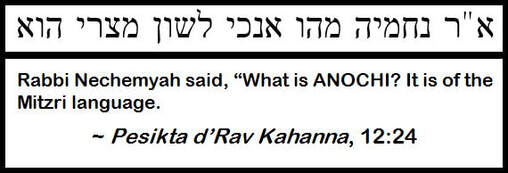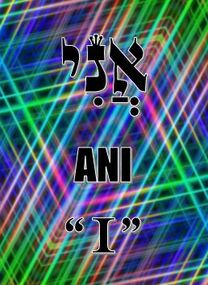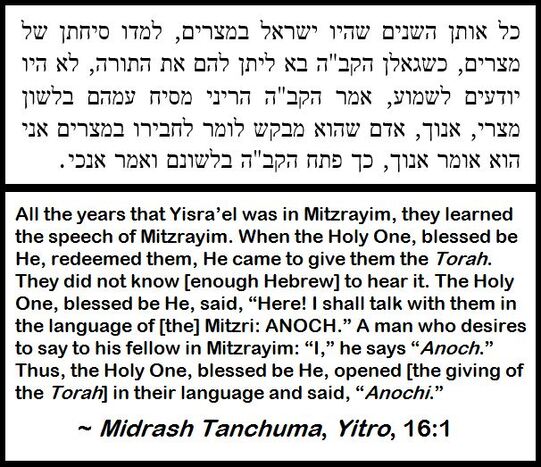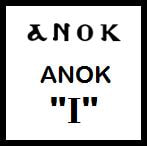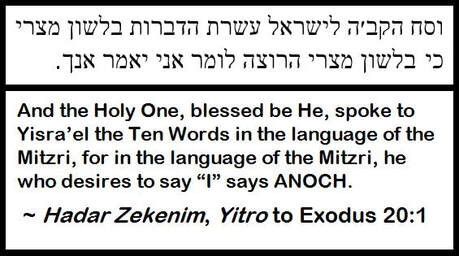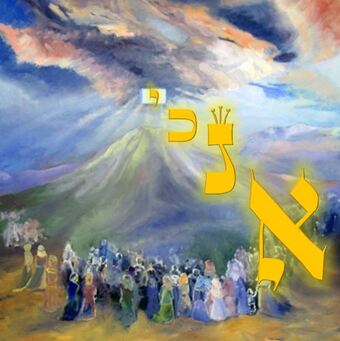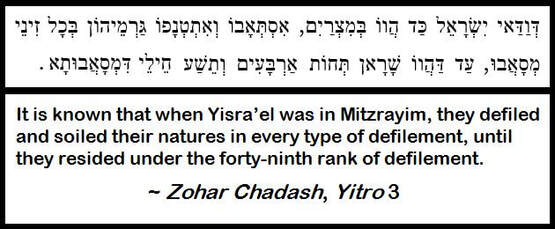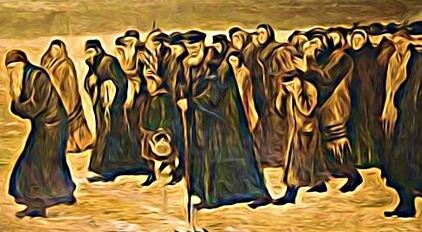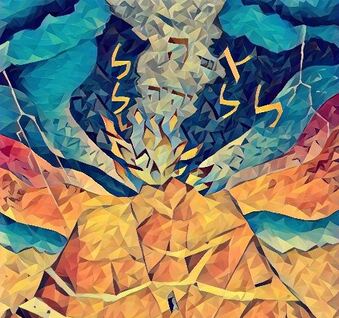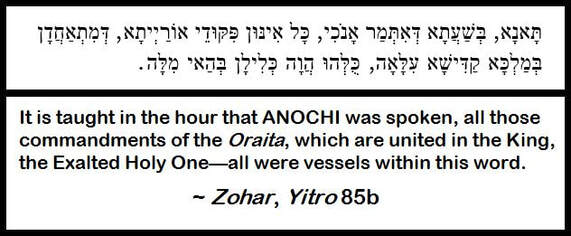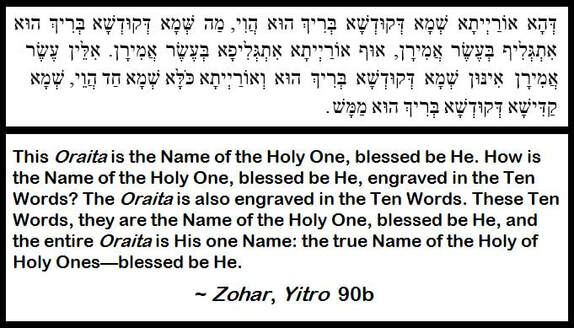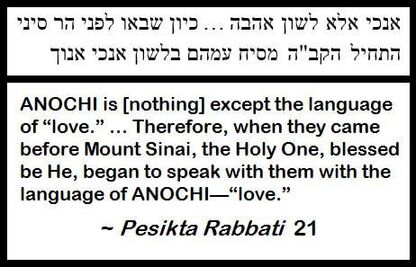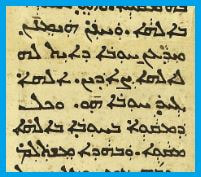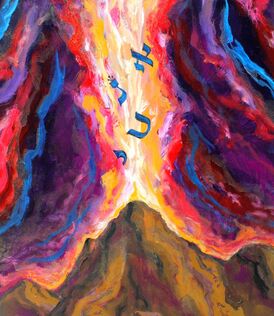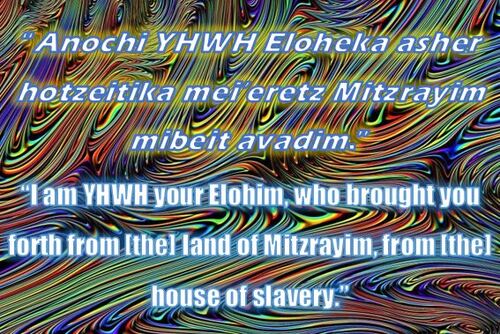ANOCHI
by Jeremy Chance Springfield
2/2/2022
The single most amazing event in the history of mankind occurred in the sight of an entire nation: at the foothills of Mount Sinai, the people of Israel—recently liberated from a life of slavery in Egypt—experienced what no other nation on this earth has ever witnessed. Before the eyes of easily over a million people, the Creator of the heavens and the earth bent the supernal world of His holy habitation to lower Himself and dwell in a show of unparalleled power upon the summit of Sinai.
Heaven bowed down upon the earth and seated creation’s King upon a throne of dirt and stone. Israel watched the culmination of their impossible exodus realized at last when the words of the Holy One that had thus far been reserved for the ears of Moses came roaring into the ears of all who were present at Sinai. The Creator had come to take a people for His own purposes in the earth.
Heaven bowed down upon the earth and seated creation’s King upon a throne of dirt and stone. Israel watched the culmination of their impossible exodus realized at last when the words of the Holy One that had thus far been reserved for the ears of Moses came roaring into the ears of all who were present at Sinai. The Creator had come to take a people for His own purposes in the earth.
Israel stood in absolute awe at the spectacle atop the mountain: fire and smoke obscured the mountain’s peaks, while what can only be described as the Kingdom of Heaven burst through the seams of reality into a world unprepared for the implications that came with it. The Torah would be presented and a people entire would pledge allegiance to the Creator’s standard.
Films have been made of this event; countless books have been written attempting to portray the grandeur inherent in such a situation. Man’s mind has struggled to comprehend the true meaning of what happened on Mount Sinai when the will of the Divine was conveyed to humanity. This study shall seek to add to the mix by emphasizing the profound degree of Divine love displayed at Sinai, which translates out also to a startling insistence on experiencing the faithfulness of man’s heavenly Father.
It all begins with the giving of the Torah in Exodus 20.
The traditional title this section has received is called The Ten Commandments. It is literally Aseret haDibrot "the Ten Words" in the Hebrew Torah in Exodus 34:28, Deuteronomy 4:13, and 10:4. The Greek Septuagint referred to them as Dekalogos, that is, the Decalogue—“The Ten Words.” Depending on what religion, sect, or denomination one may be coming from, the content and order of the Ten Commandments may slightly differ.
Despite the differences one might encounter between the various versions, the text of the Ten Commandments actually begins with a singular declaration in the Hebrew of the inspired Scripture, as Exodus 20:1-2 shows.
Films have been made of this event; countless books have been written attempting to portray the grandeur inherent in such a situation. Man’s mind has struggled to comprehend the true meaning of what happened on Mount Sinai when the will of the Divine was conveyed to humanity. This study shall seek to add to the mix by emphasizing the profound degree of Divine love displayed at Sinai, which translates out also to a startling insistence on experiencing the faithfulness of man’s heavenly Father.
It all begins with the giving of the Torah in Exodus 20.
The traditional title this section has received is called The Ten Commandments. It is literally Aseret haDibrot "the Ten Words" in the Hebrew Torah in Exodus 34:28, Deuteronomy 4:13, and 10:4. The Greek Septuagint referred to them as Dekalogos, that is, the Decalogue—“The Ten Words.” Depending on what religion, sect, or denomination one may be coming from, the content and order of the Ten Commandments may slightly differ.
Despite the differences one might encounter between the various versions, the text of the Ten Commandments actually begins with a singular declaration in the Hebrew of the inspired Scripture, as Exodus 20:1-2 shows.
The passage continues and lists the familiar content of the Ten Commandments. However, the focus for this study is on the very first word uttered by the Holy One in this initial presentation of the Torah.
That term is the word ANOCHI “I.”
That term is the word ANOCHI “I.”
You are not reading this wrong: the focus of this study will be on the presence of one single pronoun used before all the weighty content of the Ten Commandments even begins!
The opening statement in the giving of the Torah begins with a word translated as “I.”
The opening statement in the giving of the Torah begins with a word translated as “I.”
“Anochi YHWH Eloheka asher hotzeitika mei’eretz Mitzrayim mibeit avadim.”
What is it about this term that is so deserving of an entire study?
The answer is that an important truth can be gleaned by looking more closely at this simple word of Anochi.
The reality of its significance lay in the source language for the term. As preserved in the text of Pesikta d’Rabbi Kahana, we are told an interesting detail about the word Anochi.
The answer is that an important truth can be gleaned by looking more closely at this simple word of Anochi.
The reality of its significance lay in the source language for the term. As preserved in the text of Pesikta d’Rabbi Kahana, we are told an interesting detail about the word Anochi.
The word Mitzri is the way one says “Egyptian” in Hebrew. The term Anochi is actually an Egyptian word! In Hebrew, if one wishes to say the pronoun “I” in the Hebrew tongue, it is done using the term ANI.
This detail shows that the people of Israel were influenced by their extended stay in the land of Egypt to the point that they adopted the language of their oppressors. This idea in the quote above is preserved in verbatim words in the text of Midrash Tanchuma, a text which then goes on to provide a brief elaboration upon that notion.
This explanation makes perfect sense. Historically, the usage of ANOCH for “I” in Egyptian is correct, as the term is even in use to this day in the Coptic language, rendered typically as ANOK.
According to Jewish tradition, therefore, the term that opens the Ten Commandments is explicitly an Egyptian word! Another Jewish text--Hadar Zekenim—upholds that view and goes further, explaining that it was not just the term Anochi that was spoken in Egyptian.
We are told that the presence of Anochi in the Hebrew text is an artifact—the only surviving detail of the concept that the entirety of the Ten Commandments was actually spoken at Sinai in Egyptian!
It may seem like a truly strange assertion—that the Creator would speak His holy Torah first to the Israelites in the Egyptian tongue. The reality of the situation in Egypt, however, was one of almost total despair. The Hebrew populace was broken down and without hope of any change. They stomached the forced labor and succumbed under the weight of pagan influence that surrounded them at every turn.
It may seem like a truly strange assertion—that the Creator would speak His holy Torah first to the Israelites in the Egyptian tongue. The reality of the situation in Egypt, however, was one of almost total despair. The Hebrew populace was broken down and without hope of any change. They stomached the forced labor and succumbed under the weight of pagan influence that surrounded them at every turn.
The text of the Zohar Chadash offers an assessment of the shameful state the people had fallen into under the oppressors who ruled every aspect of their lives.
Judaism recognizes a tiered system of holiness and impurity—consisting of 50 levels each. The highest level is essentially the nature of the Creator in His unblemished purity, and the lowest level is essentially an utterly sinful reprobate. This is to suggest that Israel’s plight in Egypt had pulled them down to the 49th level of impurity (or below—the Hebrew term used in the above quote implies “under.”) It is as if they were dangling on the very edge of irreversible tragedy. Put simply, if Israel descended any further in sin, there would be no hope for redemption—they would have been completely lost.
It is in Numbers 20:15 that this reality is expressed.
The mention that Israel’s ancestors “descended” to Egypt should not be ignored. In about twenty different instances throughout Scripture, the text mentions “descending” to Egypt. This is obviously a reference to traveling to the land, but it is also a spiritual valuation of the infective nature of Egypt: one will inevitably descend from whatever spiritual level has been attained when going into Egypt, for such is the corruptive power of its sinful nature. All will be scarred in some degree by descending to Egypt. Do not think for a moment that the world and its fallen nature cannot negatively impact a believer of even the greatest spiritual merit: sin is a disaster upon the human soul and will wreak havoc on every heart that entertains it, no matter how pure it has remained until then.
Why, then, did the Creator continue that trend of Egypt and speak in the Egyptian tongue from the heights of holy Mount Sinai?
Why, then, did the Creator continue that trend of Egypt and speak in the Egyptian tongue from the heights of holy Mount Sinai?
The reason emphasizes the love and compassion the Creator held for His people. He knows us better than we could ever know ourselves. He sees us at our worst, in those moments we would be ashamed to admit are part of our history. He knows—and He is still willing to offer us the hope of redemption. He knows, because He has followed us into our fall and not abandoned us to the consequences of our sins.
This truth is expressed in the words of Genesis 46:4.
This truth is expressed in the words of Genesis 46:4.
In this passage the Holy One declares that Israel would not go alone into a kingdom of spiritual darkness but would be preserved by His Presence in their midst even while submerged in the depravity of Egypt.
The text even uses twice the Egyptian term ANOCHI as if a prophetic hint that for as bad as it would become, hope would yet remain, for He would ascend from that steep descent, and the people would once more return to the land promised to Abraham.
The text even uses twice the Egyptian term ANOCHI as if a prophetic hint that for as bad as it would become, hope would yet remain, for He would ascend from that steep descent, and the people would once more return to the land promised to Abraham.
The use of Anochi by the Holy One in such ways as the above example have led Jewish commentators to assert that the term Anochi is itself an appropriate title for the Creator! This is hinted at in the text of the Zohar in a roundabout way.
The term Oraita is merely the Aramaic cognate for Torah. The quote proposes that the entirety of the Torah is held within that very term--Anochi. The Zohar revisits the idea in more blatant language a little later with these words.
The idea presented here is that the entire Torah is a name (title) of the Creator, and the Ten Commandments are also viewed as encapsulating the entirety of the Torah. Therefore, the Ten Commandments can be viewed as the Torah, which is itself viewed as the Name of the Creator. Since the Ten Commandments were stated to have originally been spoken at Sinai in the Egyptian language—a factor preserved with the presence of the word Anochi—then Anochi is ultimately an appropriate title for Him, as well.
This perspective might sound odd, but upon further contemplation, it shows us that He is present with us in all the trials and troubles we experience. In our darkest of hours He has not left us to wander alone and lost. If we can recognize that He is there, then we will be far better off than we would otherwise realize.
This is hinted at in the words of Proverbs 3:6.
This perspective might sound odd, but upon further contemplation, it shows us that He is present with us in all the trials and troubles we experience. In our darkest of hours He has not left us to wander alone and lost. If we can recognize that He is there, then we will be far better off than we would otherwise realize.
This is hinted at in the words of Proverbs 3:6.
If we can see Him in all that we do—in every commandment and even in every mundane act—we will also experience His hand at work in our favor in this life. The Creator spoke the Torah in Egyptian in order to show us that just as His people had become so mired in the worldliness of their situation that they could no longer even understand their own mother tongue, He was yet willing to meet them where they were at and raise them up to a place of honor as His own people, because of His great love for them. May we have the insight to know Him in all His holy ways, so that no matter how bleak things may become, hope remains intact that He will bring us the help we so desperately need.
The text of Pesikta Rabbati preserves a unique insight about the term ANOCHI that bears upon this study so perfectly.
The text of Pesikta Rabbati preserves a unique insight about the term ANOCHI that bears upon this study so perfectly.
In this surprising passage, the notion is presented that the word ANOCHI could also be used to signify “love!” Therefore, we are able to say that in an alternative take on what the Holy One said at Sinai, that the very first word He spoke in Egyptian was “love!” This revelation that ANOCHI can mean “love” fits seamlessly with the idea presented here already that ANOCHI can also be considered as a Name of the Creator!
It even fits perfectly with the assertion in the New Testament from 1st John 4:16.
It even fits perfectly with the assertion in the New Testament from 1st John 4:16.
The Creator did not leave man in slavery to a sinful kingdom. He brought us up and out of that depth of despair and through language we can appreciate, has made it clear that His Presence and love has been with us all along. The occurrence of the term Anochi emphasizes that holy truth so well!
Refusing to leave His people in a kingdom of corruption at every turn, He brought us forth and into a covenant that reveals His heart in every word. This is a truth expressed so well in the words of Paul in Ephesians 2:1-6.
Refusing to leave His people in a kingdom of corruption at every turn, He brought us forth and into a covenant that reveals His heart in every word. This is a truth expressed so well in the words of Paul in Ephesians 2:1-6.
|
1 Even for you, who were dead in your sins and in your foolishness,
2 in those that you previously walked according to the worldliness of this world, and according to the desire of the head authority of the air, of the spirit now endeavoring in the sons that are without conviction, 3 in those deeds that we also walked in from before, in lusts of our flesh, and performing the desires of our flesh, and of our mind, and as sons of wrath as fully as the rest. 4 Yet, Alaha, who is wealthy in His compassions, on account of His multitudinous love of which He loved us, 5 while we were dead in our sins, [made] us alive with the Messiah, and in His goodness ransomed us, 6 and raised us with him and sat us with him in the heavens—with Yeshua the Messiah. |
It is the love of the Creator that has fueled His faithfulness towards His people. He has not abandoned His image-bearers to the consequences of their sins but has made a way for us to be freed from the kingdom of darkness and transported instead to the kingdom of His righteousness. Yeshua’s merit is more than sufficient to raise His people out of the spiritual dregs of Egypt and into His Presence.
|
The presence of the word ANOCHI in its placement in the Ten Commandments offers the believer the reminder that the Most High will meet us where are at to take us where we need to go. No matter how grim the situation may be, the Holy One has proven He will descend to the abysses of sin and elevate even the most despairing of souls into the spiritual safety of His Presence. ANOCHI echoes loud the hope that we can know Him even if we have fallen to our lowest. He still desires to take us as His own and make us free from sin.
|
May we forever affirm how truthful and applicable are His words that begin the Torah:
All study contents Copyright Jeremy Chance Springfield, except for graphics and images, which are Copyright their respective creators.
